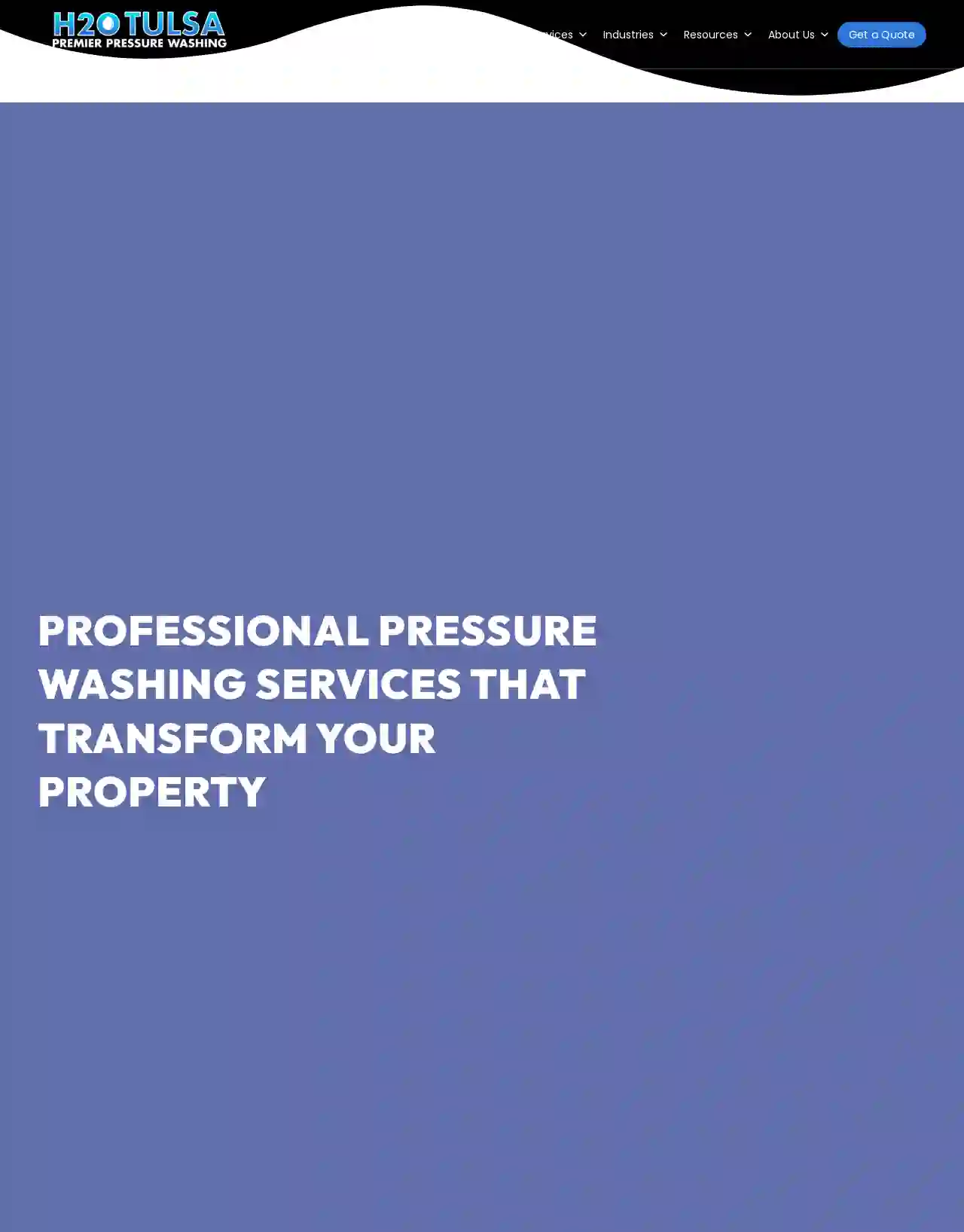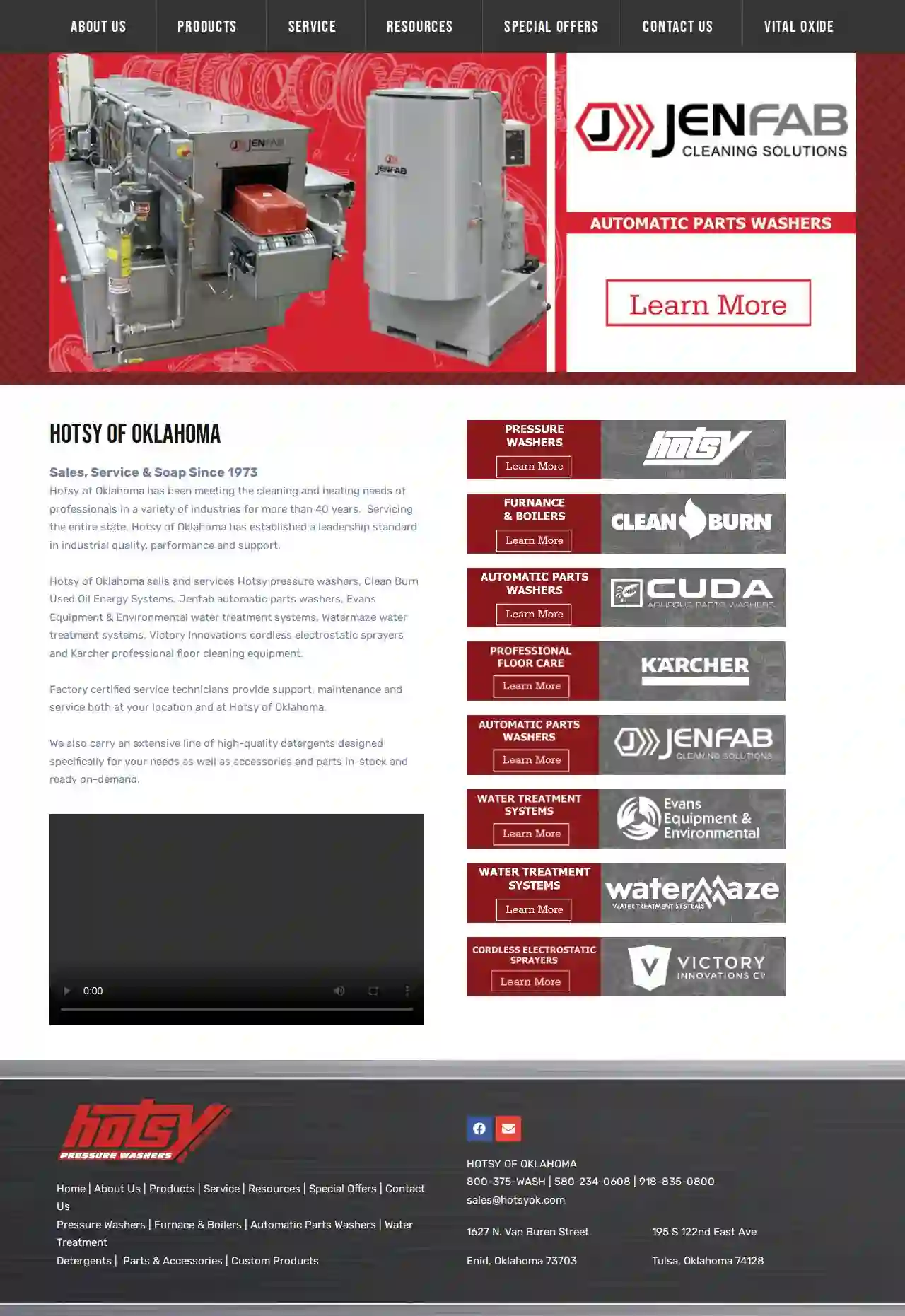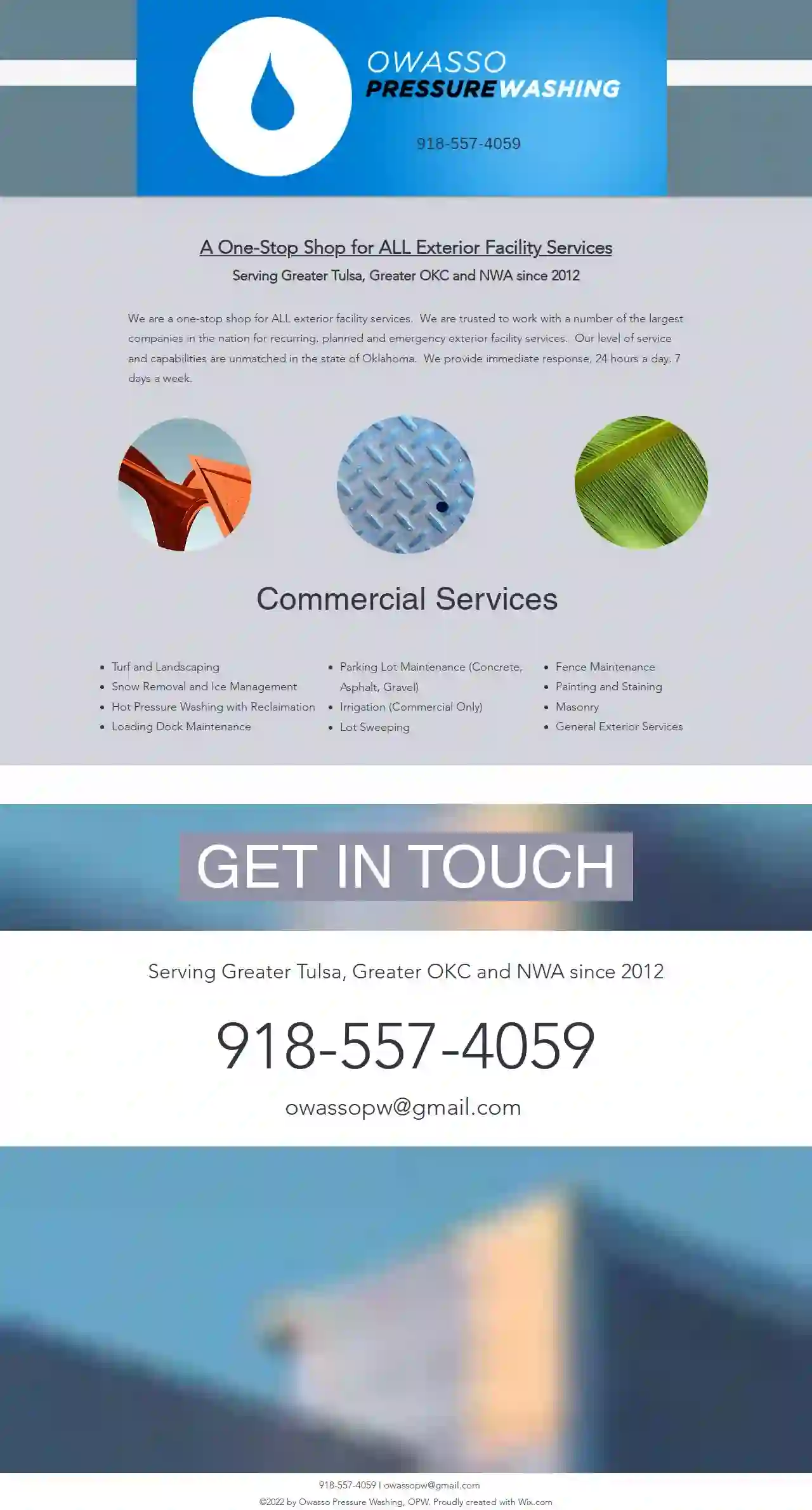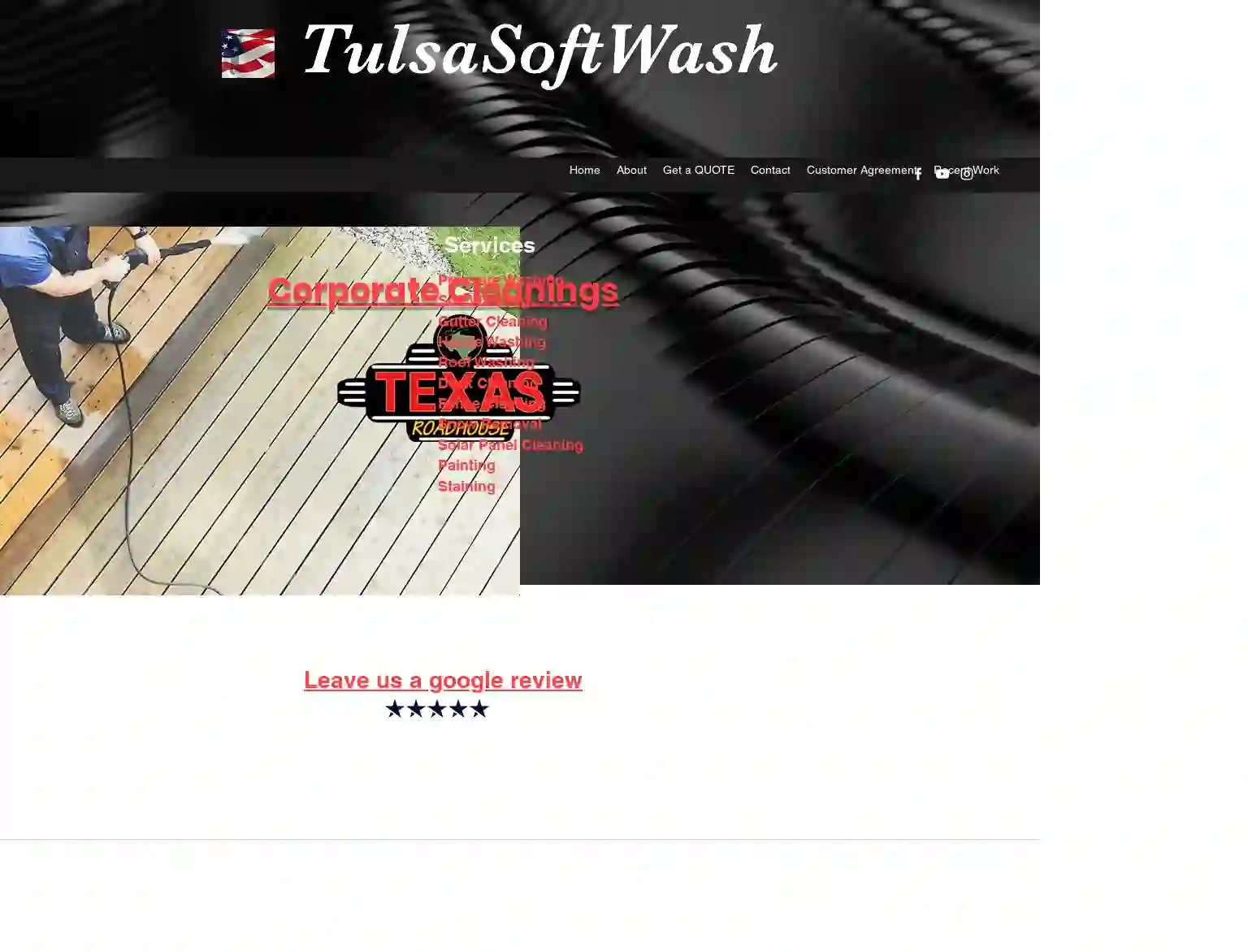Pressure Washing Ada
Find the best Driveway Cleaning in Ada
Receive 3 FREE Driveway Cleaning quotes for your project today! Compare profiles, reviews, accreditations, portfolio, etc... and choose the best service.

Morris Pressure Washing - Norman, Oklahoma
54 reviews2108 Lafayette Dr, Norman, 73071, USWelcome to Morris Pressure Washing, your trusted partner for maintaining the beauty and longevity of your home’s exterior in the Oklahoma City area. Serving Oklahoma City, Norman, and Edmond, we are your local experts in pressure washing services that enhance the look and value of your property while safeguarding it from potential damage. We understand the importance of regular maintenance to protect your investment. Our team is dedicated to providing top-notch pressure washing solutions to ensure your home stays in its best condition, year after year. Our services will also help you prevent serious issues like mold and mildew growth. Give us a call now to learn more about our services or request a quote.
- Services
- Why Us?
- Our Team
- Testimonials
- Gallery
Get Quote
580 Power Washing
123 Main St, Duncan, OK, 73533, US580 Power Washing is a leading pressure washer in Duncan, Oklahoma, providing expert services to homeowners and commercial businesses. They offer a range of services including exterior building cleans, gutter cleaning, and more. Their staff works to strict safety standards to ensure efficient and effective cleaning. They accept debit and credit cards and operate by appointment only.
- Services
- Why Us?
- Accreditations
- Our Team
- Testimonials
Get Quote
Oklahoma Pressure Washing
548 reviews123 Main St, Suite 100, Tulsa, 74101, USOklahoma Pressure Washing is a professional pressure washing service that offers residential and commercial pressure washing in the Tulsa area. Our expertise and attention to detail make pressure washing an easy, comfortable, and cost-effective experience for you. We offer a variety of services including house washing, roof washing, driveway washing, window washing, rust removal, and oil removal. Our team is experienced, OCD technicians who provide free estimates and guaranteed satisfaction. We can help raise your property's value by up to $15,000 just by pressure washing the siding of your home or business.
- Services
- Why Us?
- Accreditations
- Our Team
- Testimonials
- Gallery
Get Quote
Platinum Coatings & Pressure Washing
58 reviews1111 Hood Avenue, Tulsa, 74115, USPlatinum Coatings and Pressure Washing is a Tulsa, OK based company dedicated to providing high-quality painting, epoxy flooring, pressure washing, and roof coating services. We pride ourselves on delivering exceptional results that exceed customer expectations. Our team of experienced professionals is committed to precision and attention to detail, ensuring a flawless finish for every project. Whether you need interior or exterior painting, durable epoxy flooring, thorough pressure washing, or long-lasting roof coatings, we have the expertise and resources to meet your needs. We offer a variety of options, including those resistant to dirt, wear, and mold.
- Services
- Why Us?
- Accreditations
- Our Team
- Testimonials
- Gallery
Get Quote
H2O Tulsa Premier Pressure Washing
530 reviews10404 E. 55th Place, STE. B, Tulsa, 74146, USH2O Tulsa is a professional pressure washing company that goes above and beyond to revitalize your property. We take a refreshingly different approach to our services, ensuring that your property looks its best. We offer a wide range of pressure washing services, including fence cleaning, deck/patio cleaning, graffiti removal, parking garage cleaning, fleet wash, concrete sealing, vent-a-hood cleaning, rust removal, and trash can cleaning. Our team is dedicated to providing high-quality service and exceeding your expectations.
- Services
- Why Us?
- Accreditations
- Our Team
- Testimonials
- Gallery
Get Quote
Hotsy of Tulsa
48 reviews1627 N. Van Buren Street, Enid, 73703, USHotsy of Oklahoma has been meeting the cleaning and heating needs of professionals in a variety of industries for more than 40 years. Servicing the entire state, Hotsy of Oklahoma has established a leadership standard in industrial quality, performance and support.Hotsy of Oklahoma sells and services Hotsy pressure washers, Clean Burn Used Oil Energy Systems, Jenfab automatic parts washers, Evans Equipment & Environmental water treatment systems, Watermaze water treatment systems, Victory Innovations cordless electrostatic sprayers and Karcher professional floor cleaning equipment.Factory certified service technicians provide support, maintenance and service both at your location and at Hotsy of Oklahoma.We also carry an extensive line of high-quality detergents designed specifically for your needs as well as accessories and parts in-stock and ready on-demand.
- Services
- Why Us?
- Gallery
Get Quote
Owasso PressureWashing, LLC
529 reviewsTulsa, USA One-Stop Shop for ALL Exterior Facility Services Serving Greater Tulsa, Greater OKC and NWA since 2012 We are a one-stop shop for ALL exterior facility services. We are trusted to work with a number of the largest companies in the nation for recurring, planned and emergency exterior facility services. Our level of service and capabilities are unmatched in the state of Oklahoma. We provide immediate response, 24 hours a day, 7 days a week. Commercial Services Turf and Landscaping Snow Removal and Ice Management Hot Pressure Washing with Reclaimation Loading Dock Maintenance Parking Lot Maintenance (Concrete, Asphalt, Gravel) Irrigation (Commercial Only) Lot Sweeping Fence Maintenance Painting and Staining Masonry General Exterior Services Serving Greater Tulsa, Greater OKC and NWA since 2012
- Services
- Why Us?
- Gallery
Get Quote
Sooner State Softwash
510 reviews720 N Harrah Rd., Harrah, 73045, USWelcome to Sooner State Softwash, your reliable provider of commercial and residential pressure washing in Oklahoma City. As a locally owned and operated company, we take pride in offering quality exterior property care to our community's homeowners and businesses. Austin Cox established Sooner State Softwash LLC with a dedication to maintaining the cleanliness and upkeep of our community. Our focus is on providing reliable services and ensuring high-quality results for both residential and commercial properties. Our pressure washing company offers dependable residential services that cater to the needs of OKC area homeowners. Our services include house washing, driveway washing, and roof cleaning, which help maintain properties and enhance their curb appeal. We take pride in being fully insured and certified, giving our clients peace of mind that their investment is secure with us. If you own a commercial property, we are at your service to provide assistance. Our aim as a pressure washing company is to simplify building and property maintenance by offering an array of pressure washing solutions, such as graffiti removal, post-construction exterior cleaning, and building washing. Sooner State Softwash is a pressure washing company OKC built on trust. We prioritize our client's satisfaction and work closely with them to ensure their desired outcomes. We never consider a job complete until it meets their expectations.
- Services
- Why Us?
- Our Team
- Gallery
Get Quote
Paradigm Pro Wash
56 reviews2408 SW 78th St, Oklahoma City, 73159, USFor the best pressure washer team in the Oklahoma City area, you need the experts at Paradigm Pro Wash. We know just how to get your exterior surfaces clean and ready for whatever comes your way. We are a team of pressure washer pros that take the time and effort to ensure that every inch of your affected exterior surface is taken care of and stain-free by the time we're done with it. You can view our past projects in our gallery to see just what you can expect for your exterior surfaces. One of the greatest things about Paradigm Pro Wash is our selection of pressure washing services for residential and commercial clients. We can help everyone from the average homeowner to the multi-property-owning business owner. These services will transform the way you see pressure washing and what sorts of benefits you will reap.
- Services
- Why Us?
- Gallery
Get Quote
TULSASOFTWASH
585 reviewsTulsa, 74104, USTulsaSoftWash is your trusted partner for all your exterior cleaning needs in Tulsa, Oklahoma. We offer a comprehensive range of services, including pressure washing, soft washing, gutter cleaning, house washing, roof washing, deck cleaning, fence cleaning, snow removal, solar panel cleaning, and painting. Our team of experienced professionals utilizes the latest equipment and techniques to deliver exceptional results that exceed your expectations. We are committed to providing reliable, efficient, and environmentally friendly cleaning solutions for both residential and commercial properties. Contact us today for a free quote and let us help you enhance the curb appeal and value of your property.
- Services
- Why Us?
- Gallery
Get Quote
Over 60,241+ Janitorial Services registered
Our cleaning pros operate in Ada and beyond!
CleaningMatch has curated and vetted the Best Janitorial Contractors in Ada. Find a top & trustworthy business today.
Frequently Asked Questions About Pressure Washing
- Size of the Area: Larger areas generally cost more to pressure wash than smaller ones.
- Type of Surface: Different surfaces require different pressure levels and cleaning solutions, which can affect pricing.
- Condition of the Surface: Heavily soiled or stained surfaces may require more time and effort to clean, impacting cost.
- Accessibility: Difficult-to-reach areas may require specialized equipment and increase costs.
- Additional Services: Services like pre-treating stains, applying protective coatings, or mold removal may incur additional charges.
- Driveways: Removes oil stains, tire marks, dirt, and grime, restoring the appearance of concrete, asphalt, or paver driveways.
- Decks and Patios: Cleans wood, composite, or concrete decks and patios, removing dirt, mildew, and algae, and preparing them for staining or sealing.
- Fences: Revitalizes wood, vinyl, or composite fences, removing dirt, grime, and weathering, and enhancing their appearance.
- Siding: Cleans vinyl, aluminum, brick, or wood siding, removing dirt, mold, mildew, and other contaminants, and restoring its original color.
- Roofs: Removes moss, algae, and other debris from roofs, extending their lifespan and improving their appearance. Soft washing is typically recommended for roof cleaning to prevent damage.
- Walkways and Sidewalks: Cleans concrete or brick walkways and sidewalks, removing dirt, grime, and stains, and improving safety by reducing slipperiness.
- Brick and Stone: Cleans brick and stone surfaces, removing dirt, mildew, and efflorescence, and restoring their natural beauty.
- Wood Siding: High-pressure washing can damage wood fibers, leading to splintering or etching. Soft washing is the recommended method for cleaning wood siding.
- Asphalt Shingles: High-pressure water can dislodge granules from asphalt shingles, reducing their lifespan. Soft washing is a gentler alternative for roof cleaning.
- Painted Surfaces: High pressure can strip paint from surfaces. Always test pressure washing on an inconspicuous area before cleaning painted surfaces.
- Windows and Screens: The force of pressure washing can break windows or damage delicate window screens. Traditional cleaning methods are better suited for windows and screens.
How much does pressure washing cost?
To get accurate pricing, request quotes from multiple pressure washing companies. Provide details about the size and type of surface, its condition, and any additional services you require.
What surfaces can be pressure washed?
It's important to note that different surfaces require different pressure levels and cleaning solutions. Always consult with a professional pressure washing company to determine the appropriate cleaning method for your specific needs.
Is pressure washing safe for all surfaces?
Always consult with a professional pressure washing company to determine the appropriate cleaning method for your specific surfaces.
What is the difference between pressure washing and soft washing?
Pressure washing uses high-pressure water spray to blast away dirt, grime, and other stubborn contaminants from hard surfaces. It's effective for cleaning driveways, decks, patios, fences, and siding.
Soft washing utilizes low-pressure water combined with specialized cleaning solutions to gently remove dirt, mold, mildew, and algae from delicate surfaces like roofs, siding, and painted surfaces. Soft washing is less abrasive than pressure washing, preventing damage to sensitive materials.
Choosing the appropriate cleaning method depends on the type of surface, its condition, and the desired cleaning outcome. Consult with a professional pressure washing company to determine the best approach for your specific needs.
How much does pressure washing cost?
- Size of the Area: Larger areas generally cost more to pressure wash than smaller ones.
- Type of Surface: Different surfaces require different pressure levels and cleaning solutions, which can affect pricing.
- Condition of the Surface: Heavily soiled or stained surfaces may require more time and effort to clean, impacting cost.
- Accessibility: Difficult-to-reach areas may require specialized equipment and increase costs.
- Additional Services: Services like pre-treating stains, applying protective coatings, or mold removal may incur additional charges.
To get accurate pricing, request quotes from multiple pressure washing companies. Provide details about the size and type of surface, its condition, and any additional services you require.
What surfaces can be pressure washed?
- Driveways: Removes oil stains, tire marks, dirt, and grime, restoring the appearance of concrete, asphalt, or paver driveways.
- Decks and Patios: Cleans wood, composite, or concrete decks and patios, removing dirt, mildew, and algae, and preparing them for staining or sealing.
- Fences: Revitalizes wood, vinyl, or composite fences, removing dirt, grime, and weathering, and enhancing their appearance.
- Siding: Cleans vinyl, aluminum, brick, or wood siding, removing dirt, mold, mildew, and other contaminants, and restoring its original color.
- Roofs: Removes moss, algae, and other debris from roofs, extending their lifespan and improving their appearance. Soft washing is typically recommended for roof cleaning to prevent damage.
- Walkways and Sidewalks: Cleans concrete or brick walkways and sidewalks, removing dirt, grime, and stains, and improving safety by reducing slipperiness.
- Brick and Stone: Cleans brick and stone surfaces, removing dirt, mildew, and efflorescence, and restoring their natural beauty.
It's important to note that different surfaces require different pressure levels and cleaning solutions. Always consult with a professional pressure washing company to determine the appropriate cleaning method for your specific needs.
Is pressure washing safe for all surfaces?
- Wood Siding: High-pressure washing can damage wood fibers, leading to splintering or etching. Soft washing is the recommended method for cleaning wood siding.
- Asphalt Shingles: High-pressure water can dislodge granules from asphalt shingles, reducing their lifespan. Soft washing is a gentler alternative for roof cleaning.
- Painted Surfaces: High pressure can strip paint from surfaces. Always test pressure washing on an inconspicuous area before cleaning painted surfaces.
- Windows and Screens: The force of pressure washing can break windows or damage delicate window screens. Traditional cleaning methods are better suited for windows and screens.
Always consult with a professional pressure washing company to determine the appropriate cleaning method for your specific surfaces.
What is the difference between pressure washing and soft washing?
Pressure washing uses high-pressure water spray to blast away dirt, grime, and other stubborn contaminants from hard surfaces. It's effective for cleaning driveways, decks, patios, fences, and siding.
Soft washing utilizes low-pressure water combined with specialized cleaning solutions to gently remove dirt, mold, mildew, and algae from delicate surfaces like roofs, siding, and painted surfaces. Soft washing is less abrasive than pressure washing, preventing damage to sensitive materials.
Choosing the appropriate cleaning method depends on the type of surface, its condition, and the desired cleaning outcome. Consult with a professional pressure washing company to determine the best approach for your specific needs.